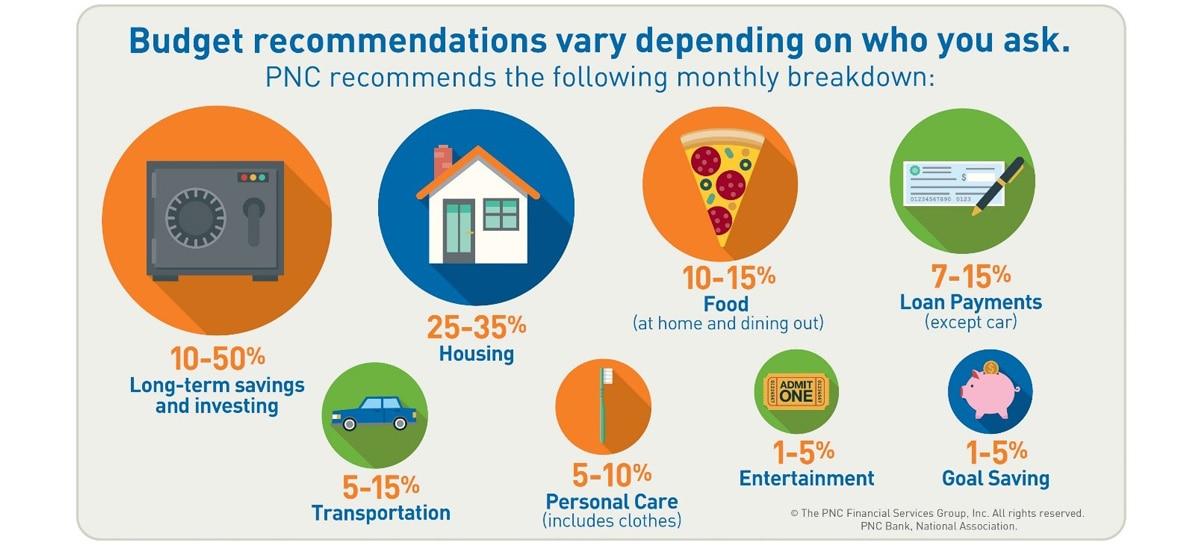
Try getting through a day without the convenience of credit cards. After all, credit cards make things easier for you in many ways large and small.
Whether booking a vacation, purchasing items online, or making day-to-day purchases for personal use, a credit card provides benefits for the responsible holder. According to Lakhbir Lamba, PNC’s Head of Retail Lending, flexibility, protecting cash flow, building credit, and an extra financial resource in emergencies all make credit cards worth having.
“Credit cards allow you to build your credit history. That is factored into the consideration of your applications for future car loans, mortgages and other forms of credit,” said Lamba. “Credit cards are also a tool that can help you monitor spending and give you financial flexibility. They can even help you analyze spending habits. All these uses mean credit cards can be a central piece of your financial life.”
Yet while credit cards have many advantages, it’s important to monitor how they are used to help you avoid potential credit issues in your financial future.
Use these tips and tactics to help you steer clear of pitfalls as you put your credit cards to work for you.
Personal Credit Cards: Apply Online & Compare Offers (pnc.com)
Make Payments On Time
First, last, and always. How you maintain your credit card accounts has a decided impact on how lenders see you. This is especially true when you’re ready to borrow for a bigger purchase, such as a home or an automobile. If you have made timely payments, you’re more likely to be viewed as an attractive potential borrower.
Having a history of late payments or defaults can cause long-term damage to your all-important credit score. As a result, future lenders may charge you a markedly higher rate—or turn you down entirely.
Missed credit card payments also can result in late fees, interest rate increases, reductions in your credit limit or even an account closure.
Manage Credit Card in Online Banking (pnc.com)
However, plenty of solutions exist to help you stay current when it comes to credit cards. For example, you can schedule automatic payments from your checking account, choosing to pay your entire balance, the minimum payment, or any amount in between.
Think About Purchases
Credit cards give you the freedom to buy what you want – when you want it. At the same time, it’s important to always be mindful to not accumulate unnecessary debt. That’s why, when buying anything with a credit card, it’s important to ask, “Is this purchase really needed?”
Some purchases are indeed necessary, no matter what. An automotive repair. The co-pay on a visit to the emergency room. An urgent, unexpected trip cross country. Those are situations for which credit cards are essential.
“There are times when expenses exceed what’s in your checking account,” continues Lamba. “Or you may contend with an unexpected event, such as an auto breakdown, an urgent home repair, or other unforeseen expenses. During those times, credit cards provide additional spending power that you can pay off during later months.”
So, it’s important to balance the flexibility and ease of credit cards with being mindful of your overall balance and what you can truly afford.
Pay More Than The Monthly Minimum
It’s tempting to simply look at your monthly credit card statement and pay the minimum amount. However, this will result in your paying far more interest in the long-term and it could affect your ability to secure financing for larger purchases.
While it’s fine to keep a balance on your card, it’s also important to make sure you’re paying down that balance in a significant way beyond the minimum payment. This can make a difference when it comes to obtaining future credit.
“One important thing that creditors look at is your current credit utilization, the percentage of your credit limit you use. If you only make the minimum payment, your credit utilization will grow over time. That’s something creditors keep track of. Because a high credit utilization score is something they don’t like to see when extending additional credit on the card, or future applications,” said Lamba.
Keep Tabs On All Activity
PNC credit cards come equipped with a variety of digital account management tools to help you manage your card transactions and payments. Through these tools, you can set up alerts for transactions, view your account balance quickly or redeem rewards. PNC also has many security benefits if you replace your credit card, such as PNC Easy Lock®, which will help you protect your accounts if your card is lost or stolen. Regardless of who you bank with, it is a good idea to familiarize yourself with the tools available and use them to manage and monitor your card’s activity.
Alerts are valuable. But it’s still important to review your statement regularly, not just wait for the monthly statement. This allows you to catch errors and fraudulent charges sooner, which can save bigger headaches down the road.
Carefully reviewing your charges may not be fun, but, as Lamba offers, it’s far more enjoyable than overlooking an erroneous or even fraudulent charge.
“Unfortunately, there are many fraudsters out there, so it’s important to look at your transactions frequently to confirm that purchases are made by you, not unauthorized users. If you’re not checking every day, you could unknowingly incur big balances or pay for transactions you didn’t make.”
Fortunately for its cardholders, Lamba continues, PNC is on the forefront of credit card security.
Do You Know the Most Common Types of Cybercrime? | PNC Insights
“PNC takes fraud and unauthorized charges very seriously. We track spending habits and where purchases are made. We send messages to confirm transactions. We even will make phone calls and send e-mails to ensure the transactions are being initiated by you. To us, that’s just all part of protecting the cardholder.”
Don’t Close Unused Card Accounts
It might sound counter to accepted wisdom, but it’s typically a good idea to keep unused credit card accounts open.
Canceling an unused credit card may drive up your utilization of credit ratio. In turn, this can lower your credit score.
However, there are some instances when you might want to close a card account. One reason would be as the result of divorce. In that instance, it’s advisable to separate your credit from that of your former spouse.
In the end, common sense and vigilance will help make your experience with credit cards a positive one. Follow our guidelines for responsible credit card use and they will prove to be valuable tools in your financial life.







